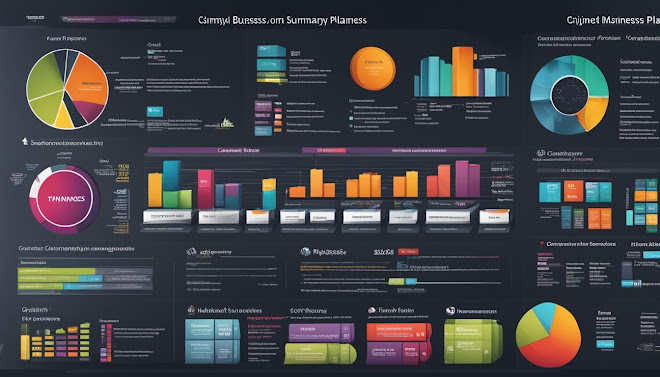Crafting a Business Plan: Step-by-Step Guide
If you’re planning to start or expand your business, making a business plan is a crucial step towards success. An effective business plan can serve as a roadmap for your future goals and objectives and can also help you secure funding for your venture.

However, creating a business plan can be daunting, especially if you don’t know where to start. Don’t worry; our step-by-step guide will provide you with all the details on how to make a business plan, including essential elements, helpful tips, and the importance of using a business plan template. Let’s dive in!
Read More : Business License Steps: How to Get One Easily
Steps to Create a Business Plan
Creating a business plan is a critical aspect of starting a successful business. By following these key steps, you can develop a well-structured and comprehensive business plan.
Step 1: Define Your Business
The first step is to clearly define your business by identifying your target audience, products or services, and competitive landscape.
Step 2: Conduct Market Research
Conducting market research involves analyzing industry trends, consumer behavior, and competitor strategies. This information will help you make informed decisions about your business and target market.
Step 3: Outline Your Business Strategy
Develop a clear business strategy that outlines your goals, objectives, and tactics. This strategy should guide your business decisions and provide a roadmap for achieving success.
Step 4: Write a Detailed Business Plan
Using the information gathered in the previous steps, write a detailed business plan that includes a description of your business, marketing and sales strategies, financial projections, and management structure.

“A clear and well-structured business plan is key to securing funding and building a successful business.”
By following these steps and utilizing a business plan template, you can create a comprehensive and effective business plan that will help you achieve your goals and secure funding for your venture.
Conclusion
Congratulations, you have completed the step-by-step process of crafting a comprehensive business plan. By following our guide, you have created a critical roadmap that will help you secure funding, make informed decisions, and set your business up for success.
Remember to tailor your business plan to your specific needs and to utilize templates to ensure that you cover all essential elements. Your business plan should serve as a living document that you revisit and adjust as your business evolves.
We wish you the best of luck on your entrepreneurial journey and hope that our guide has provided valuable insights and tips. Don’t forget to stay motivated, passionate, and dedicated to your vision. With a solid business plan in hand, you’re ready to conquer the world!
FAQ
How do I start creating a business plan?
To start creating a business plan, you should first gather all the necessary information about your business, such as your goals, target market, competition, and financial projections. This will help you establish a strong foundation for your plan.
What are the essential elements of a business plan?
A business plan typically includes sections such as an executive summary, company description, market analysis, organization and management structure, product or service line, marketing and sales strategies, and financial projections. These elements provide a comprehensive overview of your business and its potential for success.
How long should a business plan be?
The length of a business plan can vary depending on the complexity of your business and your intended audience. In general, a concise and well-written business plan should be around 20-30 pages. However, it’s important to focus on quality rather than quantity, ensuring that all essential information is included.
Is it necessary to use a business plan template?
While using a business plan template is not mandatory, it can be highly beneficial, especially for beginners or those who need guidance in structuring their plan. A template provides a clear outline and ensures that all crucial elements are included. It also saves you time and effort in formatting and organizing your plan.
How often should I update my business plan?
It is recommended to review and update your business plan regularly, especially when there are significant changes in your business or industry. Aim to revisit your plan at least once a year to ensure that it remains relevant, accurate, and aligned with your current goals and strategies.
What role does market analysis play in a business plan?
Market analysis is a critical component of a business plan as it helps you understand your target market, competitors, and industry trends. By conducting thorough market research, you can identify your unique selling proposition, assess market demand, and develop effective marketing strategies to reach your target audience.

